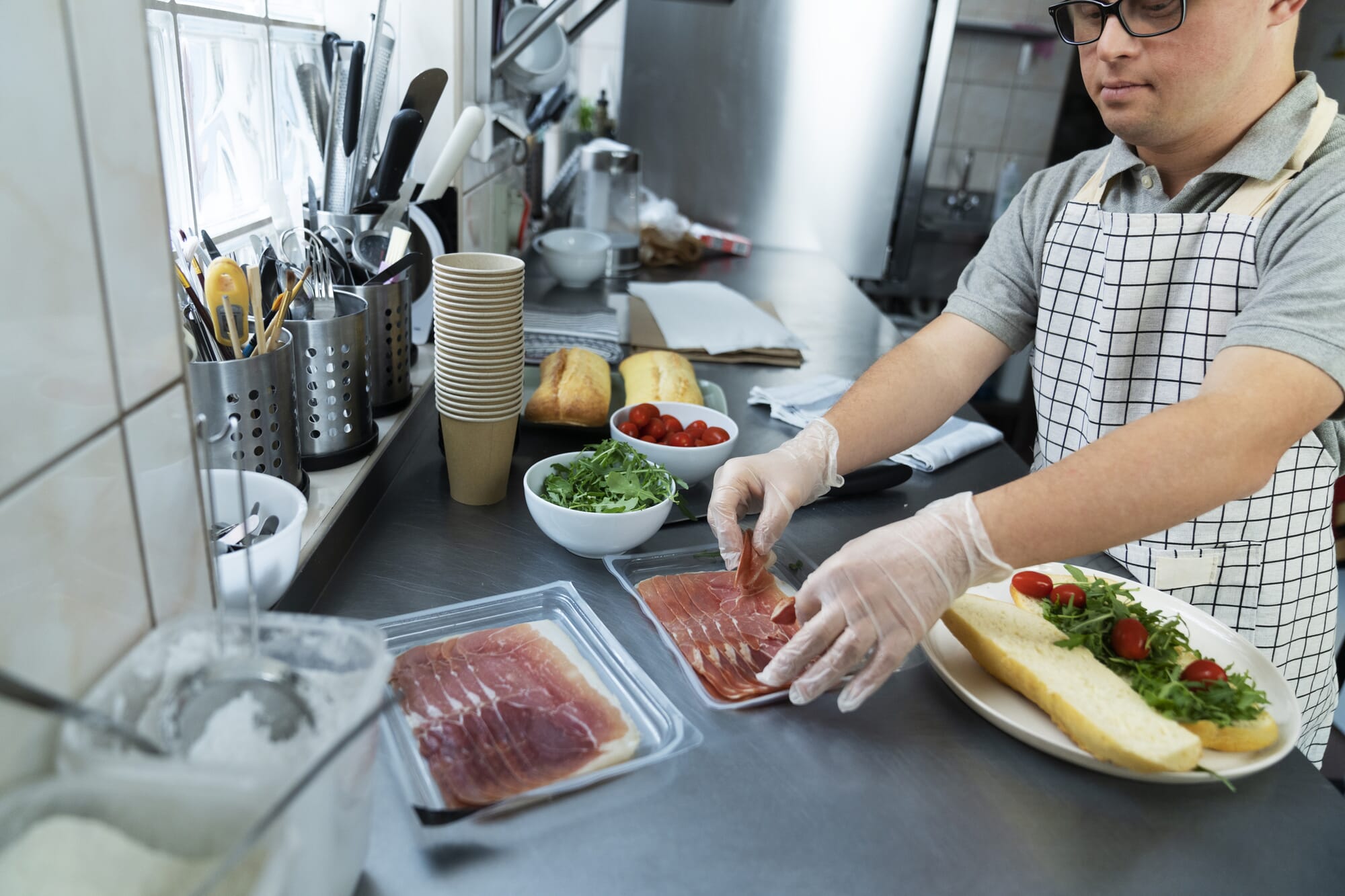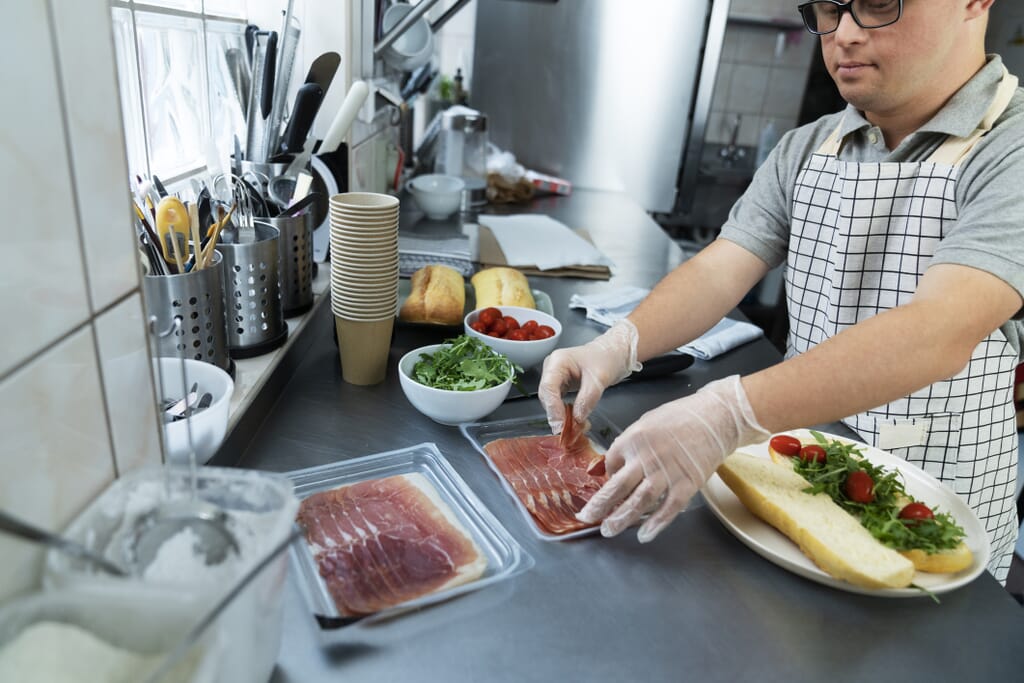Call: 01242 505 400 Or Email us

Candidate Advice
The 10 Hospitality Skills Your CV Should Feature

The hospitality sector is competitive, and having the right skills on your hospitality CV or cover letter is crucial in setting yourself apart from the other applicants.
Hiring managers often only have time to give each applicant a few minutes. Whether you are fresh to the industry or a hospitality veteran, including these hospitality skills will help get you through the first round of applications and into the interview.
Including and highlighting the skills that employers are looking for is a great way to help the hiring manager qualify your CV at a glance. Here are the most commonly requested hospitality skills for your CV.
Do these 10 Hospitality skills feature on your CV?
1. Customer service skills
The hospitality sector has a huge range of potential jobs both front and back of house. But everything you do is for the customer experience, and even if you’re not dealing with customers on a day-to-day basis, you will have some interaction with them.
Strong customer service skills are one, if not the most, important characteristics that staff must obtain to thrive in the hospitality industry. They are the main reason why guests return again and again to a hotel or restaurant; being able to highlight your customer service skills on your CV can help you stand out from the crowd.
2. Being detail oriented
Good attention to detail is important in all areas of the hospitality sector. It is easy to miss something small that can make a huge difference to the customer’s experience.
The housekeeping team needs to be able to turn over rooms at speed whilst ensuring the room is not only clean but spotless; front-of-house staff and chefs need to work together to ensure that any customer allergies are made clear before any food orders are placed by following health and safety precautions to ensure that no harm is caused to the customer.
Noticing small details, such as a faulty piece of equipment or a mixup in a reservation, can stop something simple and small from becoming a larger issue and affecting the customer’s experience.
3. Creative problem solving skills & examples
In the hospitality sector, the ability to problem solve is one of the most underrated soft skills.
When things go wrong, it is essential that the customer’s experience should not be hindered. If your delivery doesn’t turn up in a restaurant, you have a couple of options: close for the night, find a way to offer an alternative menu, or source the needed ingredients from another supplier.
It is not uncommon for guests to have an unusual request. A guest may have a special request about how their room is set up or have certain requirements for their arrival, and it is your job to make it happen and think outside the box to find ways to meet those needs or exceed their expectations.
4. Communication and conflict skills
Communication skills are essential for any hospitality professional, as you must interact with people from different backgrounds. You need to be able to communicate effectively, both verbally and in writing. You should be able to listen attentively, understand and respond to customer needs, and resolve any issues that may arise.
Conflict resolution skills are also important in the hospitality industry. You will need to be able to deal with difficult customers and situations calmly and professionally. You should be able to de-escalate situations, find solutions that are acceptable to all parties involved, and maintain a positive working environment.
By developing your communication and conflict-resolution skills, you can be a valuable asset to any hospitality team.
5. The ability to multi-task and manage time
It doesn’t matter what sector of hospitality you work in the ability to multi-task is one of the most desirable. Hospitality is a fast-paced and high-pressure environment. The ability to keep a level head and on top of multiple tasks simultaneously can help you and your team deliver better services to the customer.
6. Work effectively within a team
Working well in a team is just as important as the ability to work by yourself and manage your own time. Hospitality relies on great teamwork to help make the customer feel completely at ease. Having the ability to communicate effectively with your team members is essential. You should also be able to listen to and understand their ideas. It is also important to be able to compromise and work together to find solutions to problems.
7. Adaptability & flexibility
Any hospitality professional who has made a career in the sector has the ability to be adaptable. They understand that the job they will be doing that day might not be the same as your job title, but as a team player, you need to be able to turn your hand to almost anything.
Adaptability isn’t just the ability to turn your hand to different jobs, it is also the understanding that hospitality goes through busy periods, and if you can adapt your life to match these needs, you are a valuable member of the team.
8. Willingness to learn
The hospitality sector is vast and vibrant, with many roles that require various skills. Even if your daily tasks may seem routine, the industry’s ever-evolving nature necessitates continuous learning.
A willingness to learn helps ensure that you remain a valuable asset to your team, keeping pace with advancements and new trends. For instance, a new online booking system might initially seem complex, but an open-minded receptionist eager to learn could master the tool quickly, making reservations more efficient and improving the guest experience.
Being willing to learn means staying relevant in your role and improving both your professional growth and the overall operation of the hospitality establishment.
9. Someone who is self reliant
The ability to work alone and take responsibility for your actions is desirable for any position, even when you are working as part of a larger team. Having autonomy and accountability means you can be relied upon no matter the situation. This makes life easier for those around you and can help make you someone dependent on and looked upon when there is more responsibility.
Being able to work independently means that you can be trusted to get the job done without needing constant supervision. This is important in many fields, as it allows employers to assign tasks to employees without worrying about them being able to complete them on their own. Additionally, being able to take responsibility for your actions shows that you are mature and reliable. This is another important quality for employers, as they want to trust their employees to make good decisions and be accountable for their mistakes.
10. Be Resilient
Working in the hospitality industry high-pressure environment. Offering a variety of challenges, from busy shifts to expectant customers. Thus, resilience becomes an essential trait for success.
This quality enables hospitality professionals to face adversity head-on and bounce back from difficult situations, ensuring great service even under pressure. For example, a resilient server in a bustling restaurant could manage multiple tables, handle difficult customers gracefully, and maintain a positive demeanour.
Whether you are looking for the next step in your career or just a new challenge, RE Recruitment has the right opening for you. You can check out our latest hospitality jobs or contact us at 01242 505 400 or email us at hello@rerecruitment.com, and a specialist hospitality recruiter will be more than happy to help.




